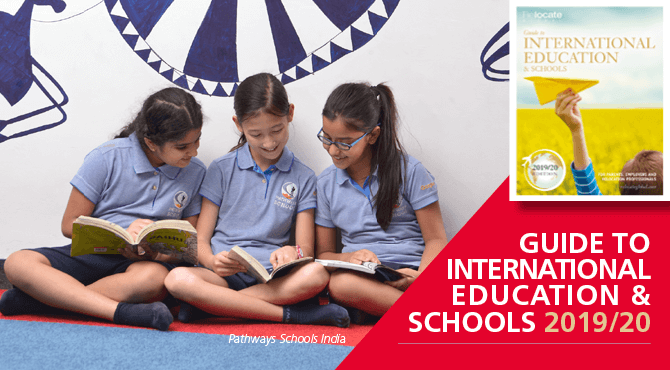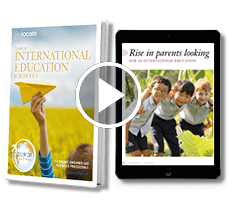What is worth knowing – and how do we teach it?
Dr Shalini Advani, director of Pathways School Noida, India, explains the importance of a curriculum that develops skills in students which will better prepare them for the future workplace.
 If these are critical workspace skills, the more important question is: What are we doing in schools and as educators to actively develop and teach these? Historically our education systems have been organised around individual competition, not collaboration. Testing is individual, homework must be done individually and grading is always individual. Collaboration is reserved for light-hearted project work. This is even more true for the development of personal attributes of reflection, empathy and understanding.So how can schools help students to develop these important skills? The following are a few practical suggestions that schools can implement:
If these are critical workspace skills, the more important question is: What are we doing in schools and as educators to actively develop and teach these? Historically our education systems have been organised around individual competition, not collaboration. Testing is individual, homework must be done individually and grading is always individual. Collaboration is reserved for light-hearted project work. This is even more true for the development of personal attributes of reflection, empathy and understanding.So how can schools help students to develop these important skills? The following are a few practical suggestions that schools can implement:Project based learning (PBL)
PBL directs students to respond to an authentic, engaging and complex question, problem, or challenge and lends itself to almost every subject. For example: begin with a question on what is a bigger danger for the health of young people – childhood obesity or malnutrition.Students conduct research on populations where either obesity or malnutrition is prevalent to discover why, what food supplies lead to it and what can be done to combat it. Reflection and group discussion may lead to the creation of an information website or an awareness campaign.Harkness Table
This is a teaching methodology designed to promote open-ended thoughtful discussion and listening skills. In this method 12 or 14 students sit in a circle and discuss a pre-decided topic. Students must have pre-read information and have already answered set questions.It is a method of student-led learning: ideally the teacher does not speak more than ten sentences. It can be initiated by saying, “Can you explain X?” or “Can we talk about Y”?Students can contribute in different ways – by analysing previous points, by providing information, by drawing upon what has been said to pose a follow-up question, by giving an opinion based on information.In the class, those in the circle receive a grade for each contribution. Those outside the circle make notes. Following this, all students complete a summary of learning points and are assessed in the usual way with a written assignment.Mindfulness
In a world of high adolescent anxiety and depression, the benefits of teaching Mindfulness have been well reported. Students across the world speak of how it improves their concentration, teachers testify to a reduction in disciplinary issues and an improvement in higher order thinking.Moreover, Mindfulness in the classroom has the capacity to train students to nurture the qualities of focus, resilience, curiosity, reflection.It is clear that schools need to redesign what they define as curriculum. Teaching subject knowledge is insufficient to prepare students for the world of work. Without posing questions which have multiple answers, developing thoughtful problem solvers, we are short-changing the children we educate. Dr Advani is founding director of Pathways School Noida, India, an IB World School located on a 10 acre site in the North of India.This article is from Relocate Global's Guide to International Education & Schools 2019/20 which is packed with expert tips and information for those relocating and the professionals supporting them. For volume options, co-branded editions, digital or online licence agreements and advertising opportunities, contact Fiona Murchie at +44 (0)1892 891334 or email fiona@relocatemagazine.comNow available as an ebook on Amazon! Simply download from Amazon onto your Kindle, mobile phone or tablet to read wherever you are!
Subscribe to Relocate Extra, our monthly newsletter, to get all the latest international assignments and global mobility news.Relocate’s new Global Mobility Toolkit provides free information, practical advice and support for HR, global mobility managers and global teams operating overseas.
 Access hundreds of global services and suppliers in our Online Directory
Access hundreds of global services and suppliers in our Online Directory For more education and school-related news, visit our Education and Schools pages.© 2019. This article first appeared in the 2019/20 edition of the Guide to International Education & Schools published by Relocate Global, Spray Hill, Hastings Road, Lamberhurst, Kent TN3 8JB. All rights reserved. This publication (or any part thereof) may not be reproduced in any form without the prior written permission of Relocate Global. Relocate Global accepts no liability for the accuracy of the contents or any opinions expressed herein.
For more education and school-related news, visit our Education and Schools pages.© 2019. This article first appeared in the 2019/20 edition of the Guide to International Education & Schools published by Relocate Global, Spray Hill, Hastings Road, Lamberhurst, Kent TN3 8JB. All rights reserved. This publication (or any part thereof) may not be reproduced in any form without the prior written permission of Relocate Global. Relocate Global accepts no liability for the accuracy of the contents or any opinions expressed herein.




















